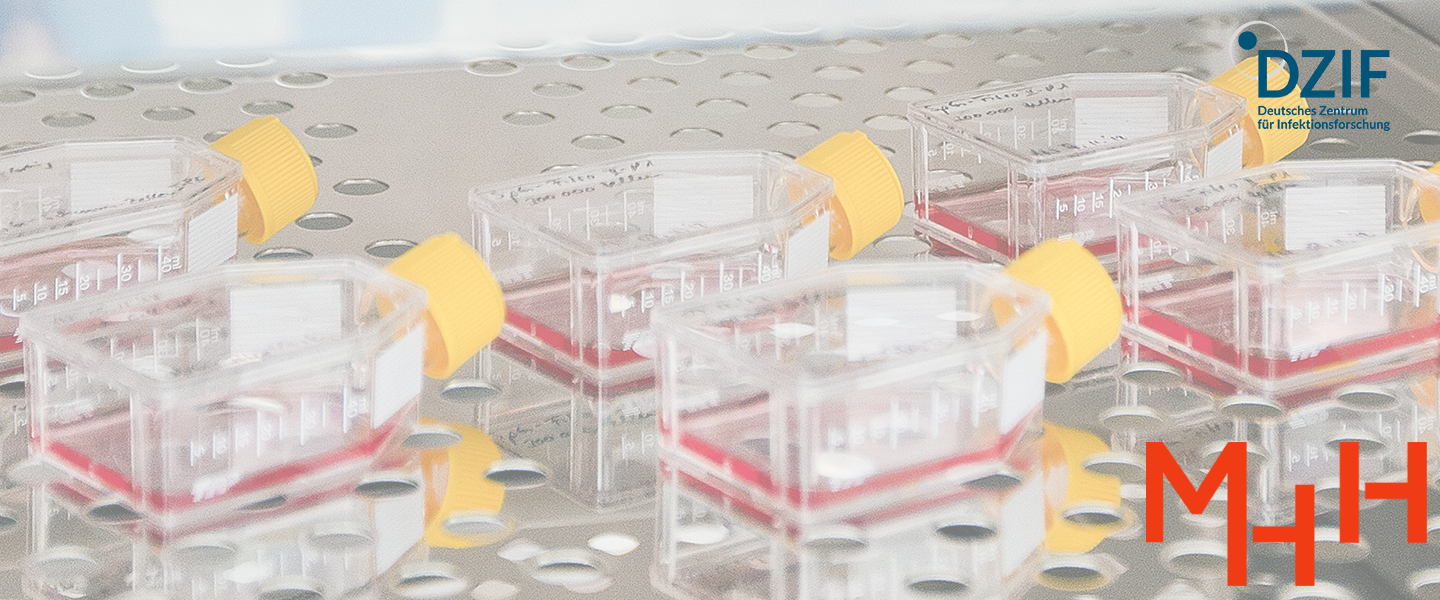Funded by the German Center for Infection Research (DZIF)
Department / Institute: Institute of Transplant Immunology, Department of Pneumology
In severe COVID-19 diseases, the SARS-CoV-2 infection alters systemically and sustainably the immune regulation on the cellular and humoral level, whereby the systemic inflammation leads to disturbed communications between immune cells and endothelium. Therefore, together with DZIF partners in Munich (TUM, LMU), Heidelberg, Marburg, Tübingen and Hamburg (UKE), we are investigating important immune cell populations, i.e. naive and memory T-, NK- and B-cells, plasma cells, monocytes, granulocytes, innate lymphoid cells (ILCs) with harmonized FACS panels. First evaluations on acute vs. convalescent COVID-19 patients show highly significant changes in granulocyte/lymphocyte and CD4/CD8 T cell ratios. Shifts from naïve to memory T- and B- and plasma cells correlate with the duration of intensive care, as do inflammation and endothelial factors. The IgM, IgG, IgA responses against S1, S2, RBD and N proteins also show individual kinetics. From these immune patterns, we want to reveal correlations to disease severity and long-term effects.
Department / Institute: Institute of Immunology
The Institute of Immunology is testing a promising SARS-CoV-2 vaccine candidate in cooperation with the Ludwig Maximilians-University Munich. In contrast to the conventional injection of the vaccine into the muscle, Professor Förster has chosen an innovative approach and is testing its administration via the airways in preclinical studies. In this way, a particularly strong immune response is to be triggered in the lungs and the upper respiratory tract in order to prevent a serious course of the disease and, ideally, to prevent SARS-CoV-2 infection a priori. In cooperation with the German Center for Infection Research, the Institute of Immunology has initiated a toxicity study that tests the tolerability of the inhaled vaccine in animal experiments. This study is carried out in accordance with the rules of Good Laboratory Practice and paves the way for the clinical testing of the promising SARS-CoV-2 vaccine candidate.
